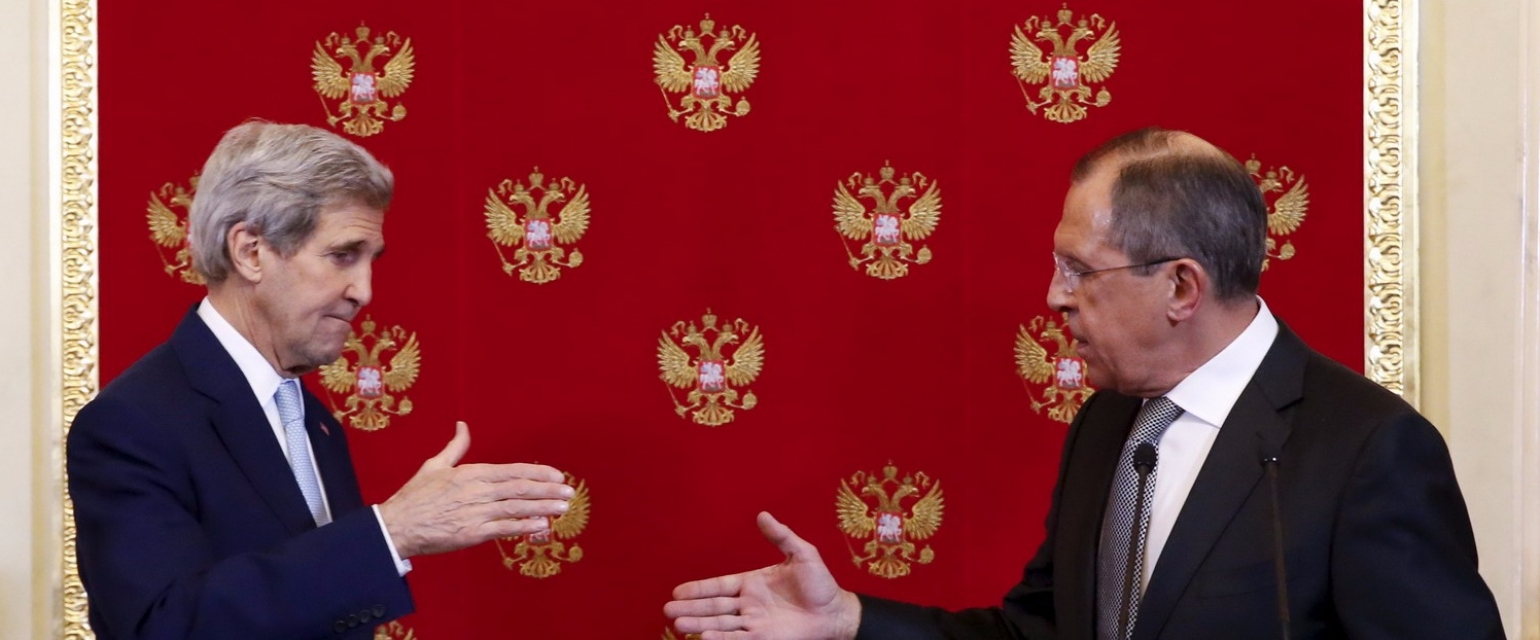

On Dec. 15, Russian Foreign Minister Sergey Lavrov and U.S. Secretary of State John Kerry met in Moscow, after which they both talked with President Vladimir Putin. Then, on Dec. 17, Vladimir Putin held his traditional year-end press conference, during which he answered questions, many of which dealt with foreign policy issues.
John Kerry in Moscow
U.S. Secretary of State John Kerry arrived in Moscow on Dec. 15. No communiqué detailing breakthrough decisions was released after his talks with Lavrov, but this does not mean that the negotiations were a failure.
First, John Kerry made it clear that the world would learn a little later about any specific agreements reached – and he was telling the truth.
On Dec. 17, the UN Security Council adopted a joint Russian-American sponsored UN resolution requiring all states to take measures to stop the sources of financing of terrorists, and in particular – to freeze assets, prohibit entry and transit, and prevent the direct or indirect supply of arms to and by persons and organizations that would be placed on the sanctions list of the UN Security Council.
Secondly, the U.S. Secretary of State came not only to find solutions, but also to seek compromises.
“The world needs that two important nations, the two leading powers, be able to find common ground and agree on the given issues,” said the head of the U.S. State Department.
Of course, he was referring to Syria and Ukraine – the two main topics of his talks with Putin and Lavrov, and his optimism was appropriate.
Theoretically, Moscow and Washington can find common ground on both issues. In Syria, both sides are interested in defeating the Islamic State of Iraq and Greater Syria (ISIS), as well as in preventing the Syrian civil war from turning into a religious or even region-wide conflict.
On the Ukrainian issue, the Americans are not interested in a new spiral of civil war in the Donbas. Although the continued low-intensity conflict will hinder the development of Russian-European dialogue, it will not lead to a Russo-Ukrainian war that might drag in Washington. For these framework compromises to turn into specific arrangements, there are needed not one, not two, but many regular meetings at the highest level.
Lukashenko – a difficult partner
The President of Belarus Alexander Lukashenko’s visit to Moscow was scheduled to take place in late November, but was canceled due to the busy schedules of both presidents. This was the official version. However, there is reason to believe that the initiator of this postponement was the Belarusian President, and this became known just before the cancelled visit.
Continue readinag at Russia Direct
Russian-Iranian relations have a much longer history and in many ways a more nuanced agenda. But if one would coin a concise definition for their current dealings, it could easily be "compelled adversaries, pragmatic pals."
This was a week that saw a number of important developments related to the Syrian crisis. On Oct. 20 Syrian President Bashar al-Assad arrived in Moscow aboard a Russian plane for an unannounced visit with the Kremlin leadership, and on Oct. 23, Sergey Lavrov and John Kerry met for talks in Vienna. Against the backdrop of these events, analysts and journalists carefully monitored President Vladimir Putin’s speech at the annual Valdai Forum.
The “Minsk process” has created a chance for Donbass to become a new proving ground for unrecognized statehood. Different options, ranging from Chechnya and Serbian Krajina to the Transnistrian experience, may be possible. Or the region may build a unique Donbass model.
The US House of Representatives and Senate overwhelmingly adopted a Russia, Iran and North Korea sanctions bill. It predictably provoked a harsh response from Russian officials. The head of the Federation Council’s Foreign Affairs Committee, Konstantin Kosachev, called for a response that would be painful for Americans. Deputy Foreign Minister Sergei Ryabkov said that Washington is “a source of threat.”